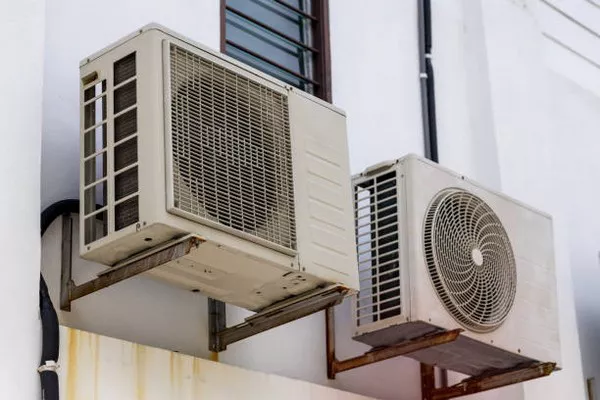Marine refrigeration refers to the systems and technologies designed to provide cooling and freezing capabilities on vessels at sea. This essential function ensures the preservation of food, medical supplies, and other perishable goods during extended voyages. In addition to preserving consumables, marine refrigeration is also crucial for scientific research vessels and certain industrial processes that require specific temperature controls.
The Importance of Marine Refrigeration
The significance of marine refrigeration cannot be overstated. For commercial fishing fleets, it is indispensable. Fish and other seafood are highly perishable; without proper refrigeration, they would spoil quickly, resulting in significant financial losses and potential health risks. Similarly, cargo ships transporting perishables such as fruits, vegetables, dairy products, and meats rely on these systems to maintain product integrity over long distances.
Passenger ships, including cruise liners, depend on marine refrigeration to provide fresh food and beverages to guests throughout their journey. For naval and research vessels, the refrigeration of medical supplies and scientific samples is crucial to ensure operational efficiency and the success of missions.
Components of Marine Refrigeration Systems
Marine refrigeration systems are sophisticated and robust, designed to endure the harsh conditions of the marine environment. They typically include the following components:
Compressors: These are the heart of the refrigeration system, responsible for compressing the refrigerant and circulating it through the system. Marine compressors are designed to handle fluctuating power levels and are built to be robust and reliable.
Condensers: These units dissipate the heat absorbed by the refrigerant from the refrigerated space. Marine condensers are usually cooled by seawater, making them highly efficient and capable of operating in various environmental conditions.
Evaporators: Located in the refrigerated compartments, evaporators absorb heat from the space, cooling it down. They need to be compact yet powerful enough to maintain low temperatures in confined spaces.
Expansion Valves: These regulate the flow of refrigerant into the evaporator, ensuring optimal cooling efficiency and performance.
Refrigerants: Modern marine refrigeration systems use environmentally friendly refrigerants that comply with international regulations to minimize their environmental impact.
Control Systems: Advanced electronic controls manage the operation of the refrigeration system, ensuring precise temperature regulation and efficient operation. These systems can include remote monitoring capabilities, which allow for real-time oversight and troubleshooting.
Types of Marine Refrigeration Systems
Marine refrigeration systems can be categorized into several types based on their design and application:
Direct Expansion Systems (DX Systems): These are the most common type of marine refrigeration system. In DX systems, the refrigerant is expanded directly in the evaporator coils located inside the refrigerated space. These systems are relatively simple and efficient, making them suitable for a wide range of applications.
Chilled Water Systems: These systems use water chilled by a central refrigeration unit, which is then circulated through the vessel to cool various spaces. Chilled water systems are typically used on larger ships, such as cruise liners and naval vessels, where they provide consistent and reliable cooling across multiple compartments.
Brine Systems: Similar to chilled water systems, brine systems use a saline solution as the secondary refrigerant. The use of brine provides additional protection against freezing and is often used in applications where extremely low temperatures are required.
Cascade Systems: These systems employ two or more refrigeration cycles in series to achieve very low temperatures, often below -50°C. Cascade systems are used in specialized applications, such as on scientific research vessels that need to store biological samples or other sensitive materials.
Challenges and Innovations in Marine Refrigeration
Operating a refrigeration system at sea presents unique challenges. Marine environments are harsh, with constant exposure to saltwater, temperature extremes, and mechanical vibrations. Ensuring the reliability and longevity of refrigeration equipment under these conditions requires robust design, high-quality materials, and regular maintenance.
Key Challenges
Corrosion: Saltwater is highly corrosive, and marine refrigeration systems must be constructed with corrosion-resistant materials such as stainless steel and marine-grade aluminum. Regular maintenance and the use of protective coatings are essential to prevent corrosion-related failures.
Energy Efficiency: Ships have limited power resources, and refrigeration systems must be highly energy-efficient to minimize their impact on the vessel’s overall energy consumption. Innovations in compressor technology, improved insulation, and advanced control systems have significantly enhanced the energy efficiency of modern marine refrigeration systems.
Environmental Regulations: The maritime industry is subject to strict environmental regulations regarding refrigerants and emissions. The phase-out of ozone-depleting substances and the adoption of low-global-warming-potential (GWP) refrigerants are ongoing challenges that require continuous adaptation and innovation.
Innovations
Natural Refrigerants: The use of natural refrigerants such as ammonia (NH3) and carbon dioxide (CO2) is gaining traction in marine applications. These refrigerants have low GWP and zero ozone depletion potential, making them environmentally friendly alternatives to traditional synthetic refrigerants.
Smart Control Systems: The integration of advanced electronic control systems with IoT (Internet of Things) capabilities allows for real-time monitoring and optimization of refrigeration systems. These smart systems can predict maintenance needs, adjust operations for maximum efficiency, and provide remote diagnostics, reducing downtime and operational costs.
Hybrid Systems: Hybrid refrigeration systems that combine different technologies, such as absorption refrigeration with traditional compression systems, are being developed to enhance efficiency and flexibility. These systems can utilize waste heat from the ship’s engines, further improving overall energy efficiency.
Improved Insulation Materials: Advances in insulation materials, such as vacuum insulation panels (VIPs) and aerogels, are being incorporated into marine refrigeration systems. These materials provide superior thermal insulation, reducing the load on refrigeration equipment and enhancing energy efficiency.
See Also How Does Industrial Refrigeration Work
Conclusion
Marine refrigeration is a critical technology that supports the global maritime industry, ensuring the safe and efficient transportation of perishable goods, the comfort of passengers, and the success of scientific and industrial operations at sea. As environmental regulations become more stringent and the demand for sustainable solutions grows, innovations in marine refrigeration will continue to evolve. By embracing new technologies and materials, the industry can meet these challenges and maintain the reliability and efficiency of marine refrigeration systems in the demanding marine environment.

